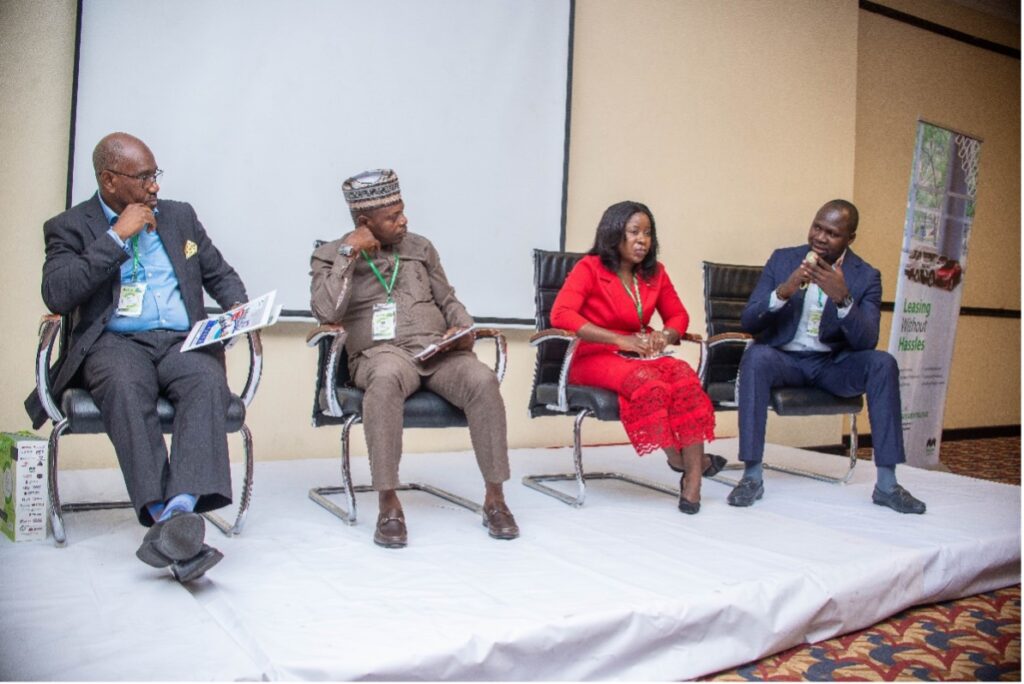The importance of equipment leasing to Micro, Small and Medium-Scale Enterprises (MSMEs) cannot be overstated. Globally, leasing has gained recognition and established itself as a creative financing alternative that provides an innovative means of increasing domestic investment within economies. In Nigeria, leasing is even more relevant, given the challenging economic conditions that make it increasingly difficult for MSMEs to access productive assets. Equipment leasing is a financial facility which allows a business to use an asset or equipment over a fixed period, in return for regular payments. The business customer chooses the equipment it requires and the leasing company buys it on behalf of the business.
A major part of funding requirement by MSMEs, whether involved in goods or services, is equipment. Whether it’s office equipment like laptops, production equipment like machinery, farming equipment like tractors, or logistic equipment like vehicles, rather than investing large amounts of capital and depleting operational funds or seeking bank loans to finance these assets, businesses can lease them from equipment leasing companies and pay fraction of the cost as rent for their use. Leasing enables long-term and convenient access to capital equipment, allowing companies to preserve their funds for other productive purposes instead of investing heavily in asset purchases.
Furthermore, here are some of the other reasons why equipment leasing is a creative option to finance equipment for MSMEs:
- High interest rates of bank loan
- Difficulty in accessing bank loans due to the high risk associated with lending to MSMEs.
- Challenges in accessing foreign exchange for imports, which is a major issue for MSMEs.
- General import difficulties for individual MSMEs, which can be avoided by leaving equipment buying and importing to specialised businesses.
Given all these advantages, equipment leasing is considered a strategic tool for financing MSMEs. But what is the state of equipment leasing in Nigeria and how is SEDIN supporting the equipment leasing ecosystem in Nigeria?
According to a publication by the Nigerian Leasing Industry titled “More Than a Decade of Growth and Resilience” published in March 2022, the “Nigerian Leasing Industry has consecutively and consistently recorded growth in business transactions. The industry has further displayed its resilience and ability to support economic investment and development, either in times of boom or challenges. After recording a sharp decline in growth from 14.5% in 2019 to 4.3% in 2020, (the year of high prevalence of the covid 19 pandemic), the industry recovered with a 28.65% growth in 2021”.
However, despite the growth, the industry in Nigeria is still far from realizing its full potential. Currently, large companies constitute most of the equipment leasing users in Nigeria, while only a few MSMEs take advantage of this facility. Some key challenges facing the industry in Nigeria include the non-implementation of the Equipment Leasing Act 2015, an unfavourable business environment for investors, low capacity of stakeholders and poor awareness among MSMEs and SME support ecosystem actors.
Recognising the enormous potential of equipment leasing as MSMEs’ support and employment-enabling facility, and confident that the challenges confronting the industry are surmountable, SEDIN entered into a partnership with the Equipment Leasing Association of Nigeria (ELAN) to jointly develop and implement measures to remove bottlenecks and constraints in the leasing ecosystem and enhance access to innovative sources of finance for MSMEs across Nigeria, with specific focus on SEDIN focal states. Under this partnership, SEDIN has supported ELAN in organising a Public-Private Dialogue (PPD) and carrying out advocacy efforts that led to the inauguration of the Equipment Leasing Registration Authority (ELRA) as required by the Equipment Leasing Act 2015. The inauguration of ELRA will enhance the regulatory environment for equipment leasing, ensure the protection of the rights of both lessees and lessors, provide security for lessors, and promote transparency. This will ultimately increase investments, particularly foreign direct investment (FDI) into the sector and lead to the general growth of the industry.
Additionally, ELAN and SEDIN have initiated a series of B2B/B2C networking events for leasing companies and other investors interested in supporting equipment financing for MSMEs in various sectors. This initiative commenced with the plastic recycling value chain in Lagos State in April 2023. Although the success of these networking sessions is still being assessed, early signs are very encouraging, as equipment leasing transactions are already taking place with participating MSMEs. SEDIN and ELAN have plans to expand this initiative to other sectors and states and open to partnerships with other programmes to reach a wider target audience with equipment needs.


